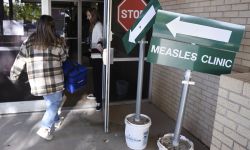Michigan seniors face coronavirus, and the fear of being left alone
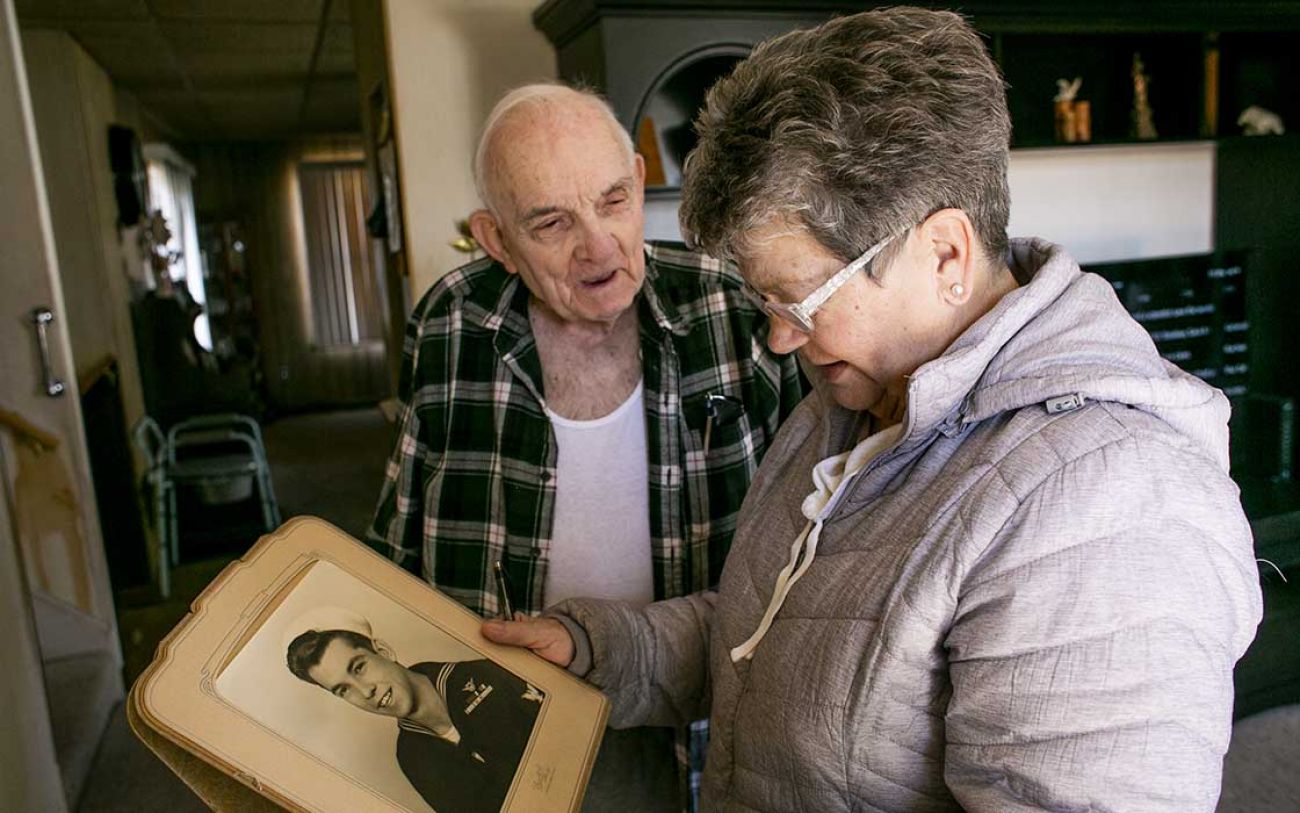

GRAND RAPIDS—On Thursday, Linda Burpee did what she’s been doing for years, five days a week.
She stopped in to see her mother, Patricia Burpee, 97, at a Grand Rapids nursing home.
It was bittersweet.
I love you, she told her mother, as she readied to leave following a spirited game of bingo.
I love you more, her mother replied back. That was their parting routine.
Grand Rapids-based Clark Retirement Community announced that day it was imposing a ban on visits to the 200-plus elderly residents in its assisted care and skilled nursing facilities.
“I thought maybe this could be the last time I see her,” Linda Burpee said. “It is very sad for me.”
As the coronavirus virus spreads through Michigan, the demographic group most vulnerable to the disease — those aged 70 and up — face some piercing emotional challenges as well, such as isolation and grief as family visits stop and social activities are put on hold.
On Friday, Gov. Gretchen Whitmer imposed a visitor ban on nursing homes across the state, as well as on hospitals, another place where elderly patients can feel very much alone. The no-visitation order affects more than 450 nursing homes and 40,000 nursing home residents, according to Michigan’s Department of Licensing and Regulatory Affairs.
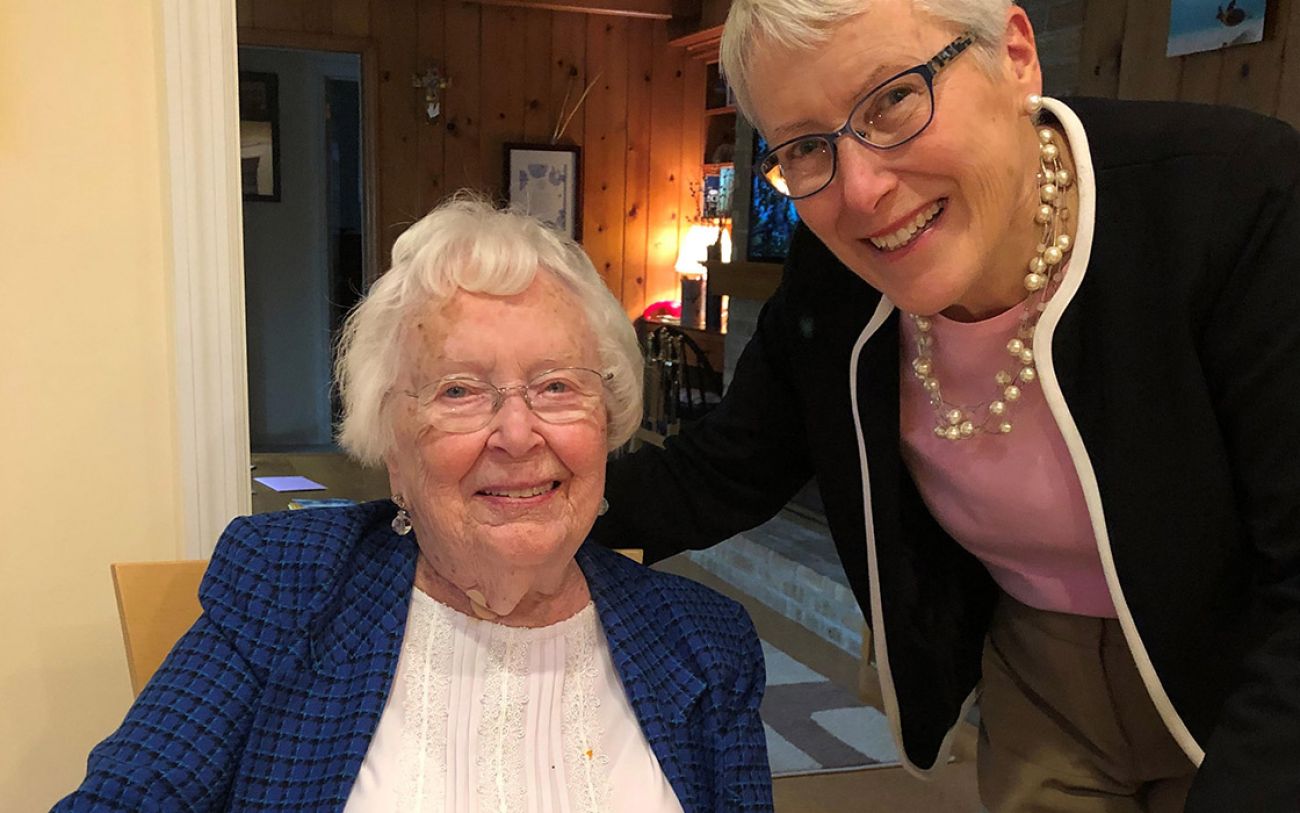
Other venues where seniors gather will also face restrictions or closings, including churches, synagogues, mosques and other places of worship, and dozens if not hundreds of community centers where seniors meet for meals, classes and field trips.
RELATED: Empty pews and open parking at one small-town Michigan church
These centers face some “tough, tough decisions,” said Carl Gabrielson, executive director of the Loose Senior Center in Linden, south of Flint. The center draws 5,100 seniors a month from four counties for dances, yoga and cards. The center also provides help with medical and legal matters.
With the coronavirus slicing through Michigan, the facility will largely close for the next three weeks. Beginning Monday, instead of kibitzing with friends in the cafeteria, the center will hand out lunches at the door.
“We’re going to be changing the direction of people's lives for a while,” Gabrielson said. “For some people, senior centers are their family.”
While much of the country works remotely, standing in long lines at stores to stock supplies, or texting about the impact of the coronavirus, Michigan seniors will likely find themselves increasingly home-bound, on their own and often scared, advocates told Bridge.
Mary VanGeisen, 76, normally spends weekdays with friends at the Waterford Senior Center, but that facility too is closing to protect older visitors from the coronavirus.
For the same reason, her children and grandchildren are not visiting, afraid they will infect her. Instead they’re calling a lot, and they’ve dropped off groceries at her front door.
For now, she’s fine with that and books and brief walks when it’s nice outside. The worst thing, she said, is not knowing when this isolation will end.
“I’m trying not to panic,” she said of the outbreak. “A lot of us — we’re cancer survivors, pneumonia survivors. We’re in the danger zone.”
A perfect killing machine
From the outset, it was clear that coronavirus — formally known as COVID-19 — kills the elderly at a far greater clip than any other age group.
A report from the Chinese Center for Disease Control and Prevention found that, while the overall death rate of reported COVID-19 cases was about 2.3 percent, mortality shot up to 8 percent for people in their 70s who became ill, and 14.8 percent for those in their 80s. Mortality of those in their 60s is about 3.6 percent.
Much like its coronavirus cousins, acute respiratory syndrome, SARS, and Middle East respiratory syndrome, MERS, this latest strain of coronavirus is more likely to kill those with serious underlying conditions such as diabetes, high blood pressure or heart disease.
In Washington state, two dozen deaths or more from coronavirus disease are linked to a Seattle-area nursing home.
Seniors frequently have multiple health conditions and weakened immune systems that makes it more difficult to ward off such an aggressive virus, he said.
Leading industry groups began warning visitors to stay away from nursing homes within the past week.
“The grim reality is that for the elderly, COVID-19 is almost a perfect killing machine,” Mark Parkinson, president and chief executive officer of the American Health Care Association and the National Center for Assisted Living, told CNN.
Leaving her mother ‘adrift’
Back in Grand Rapids, Linda Burpee said she understands why the nursing home needs to cut off visitor contact with its patients. It’s “for the good of the community and the residents,” she said.
But for her mother, she said, the cancellation of visits will be especially hard: “I think she is going to be set adrift a bit. That routine is very reassuring to her.”
Clark Retirement Community President and CEO Brian Pangle told Bridge the visit ban, while necessary, may be “devastating” for many residents.
“These day-to-day contacts, whether it’s a caregiver or family are very important,” Pangle said. “They are hard to replace. We have a lot of families that come here all the time.”
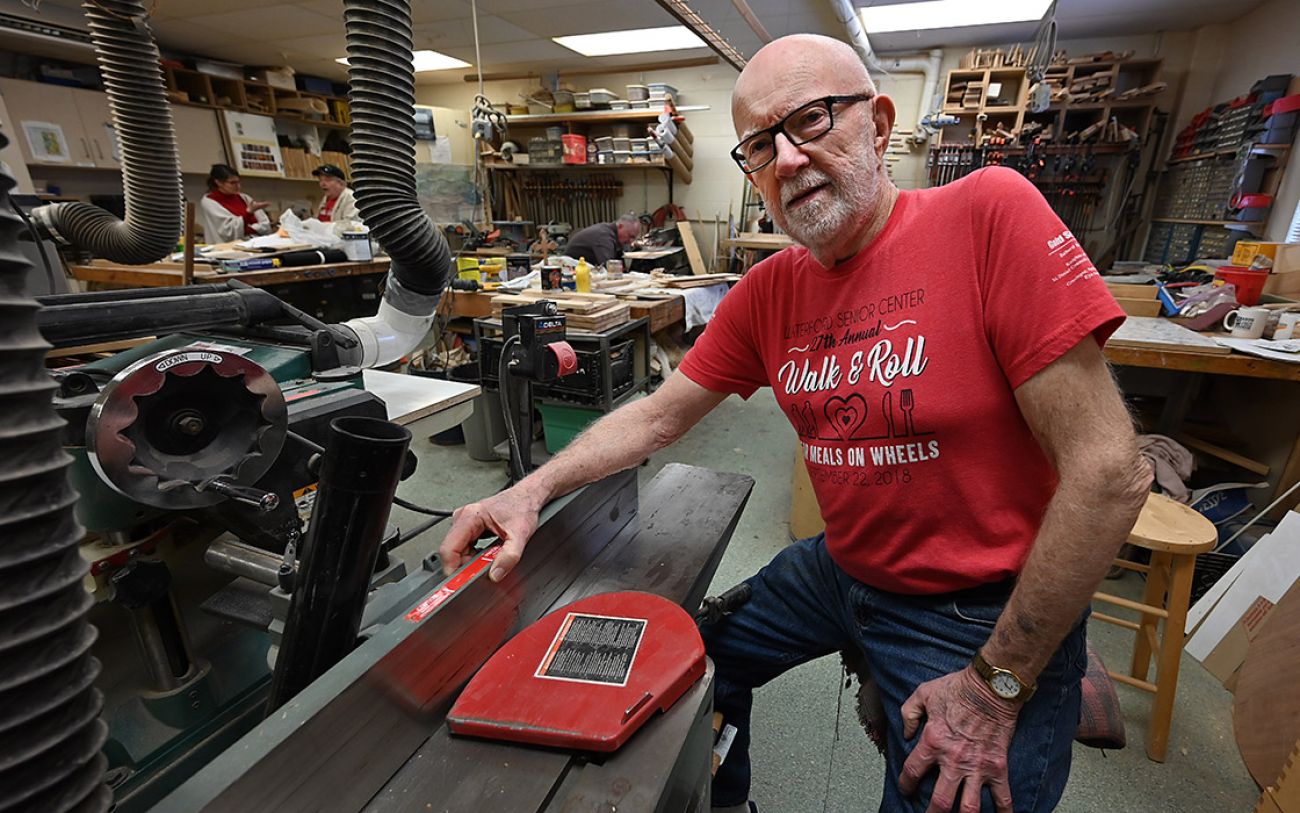
Floyd Powers knows that with the coronavirus looming, he’s on the scary end of the odds. He’s got 79 years behind him and a bad heart.
This week, Powers, who lives in Waterford, stocked up on frozen Stouffer’s lasagna and vegetables. For now, he’ll forgo woodworking at the Waterford Senior Center, where he spends weekdays eating lunch, woodworking with his buddies, or meeting with its social worker to sort out legal matters.
The virus outbreak has convinced him to put on hold preparations to sell his home; he says he’s worried about strangers traipsing through his home.
He considers himself lucky, though. He has friends, an ability to drive and can putter happily around the house for a while.
“You betcha I know that I’m fortunate,” he said. “I’m fine for a while by myself, but not everyone has that.”
RELATED:
- The latest: Michigan coronavirus locations, updated COVID-19 news
- How to prepare for coronavirus in Michigan. Step 1: Breathe
- How to make your own hand sanitizer during coronavirus shortage
- Can I get tested for coronavirus in Michigan and other questions answered
- The first line of defense against coronavirus: Try soap, not a mask
It’s one reason why the Wayne County Senior Services insists on keeping its home-delivered meals program going, at least for now, said its director, Lisa Whitmore Davis.
The agency provides congregate, home-delivered, and liquid meals to seniors in 34 western Wayne County communities and in the downriver areas. For many, losing their own place because they’ve fallen ill is an ever-present fear even in the best of times, Whitmore Davis said.
“Anyone over the age of 60 is a target for this coronavirus,” she said.
RELATED: For weary Michigan seniors, a retirement in name only
When a deadly outbreak looms, seniors who might walk at the local mall may now stay home. Others avoid buses that take them to a grocery store or a relative’s home. Social interaction that comes from volunteering at a school is out, at least until April.
“Their whole lifestyle is being disrupted, and there’s this layer of fear,” Whitmore Davis said.
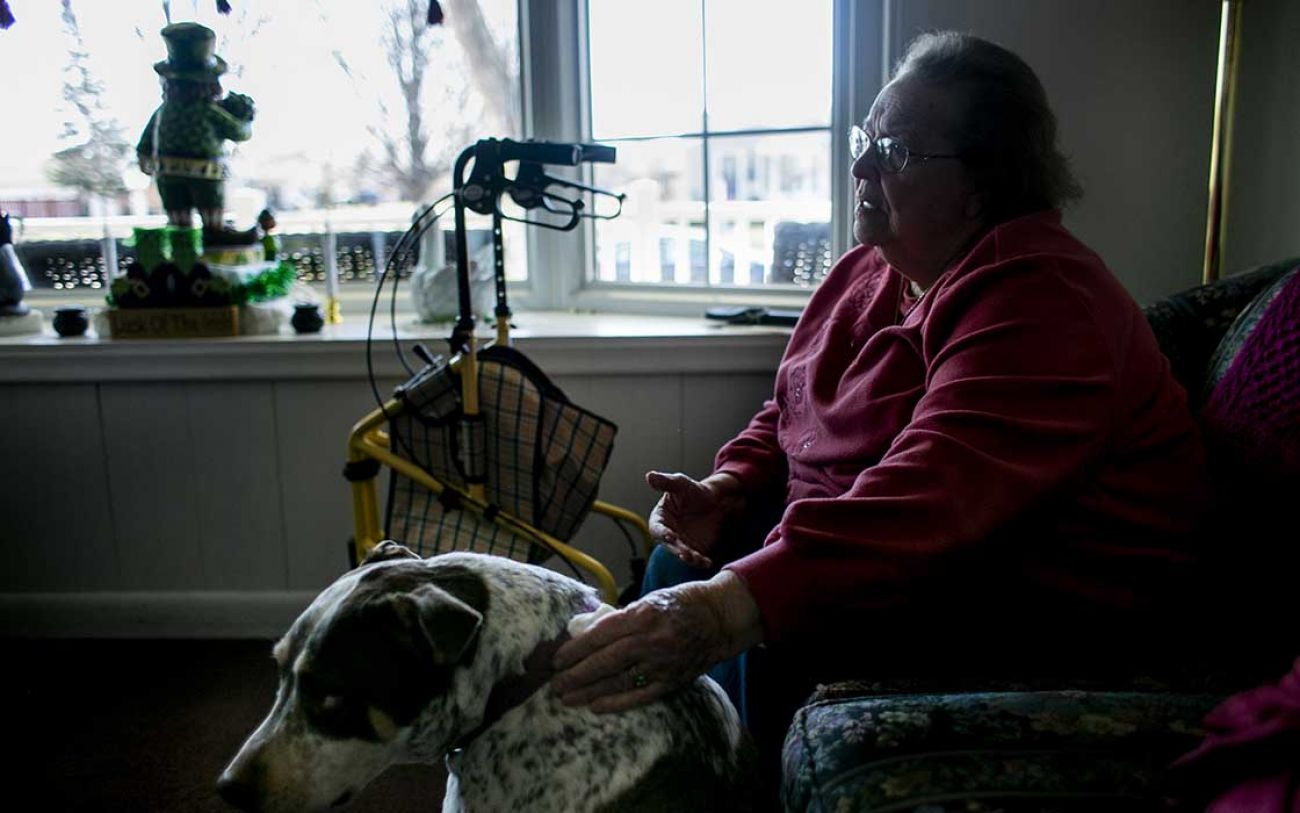
So for now, the agency’s volunteers continue to deliver meal bags, and the thrill of human contact, to the homes of more than 2,800 people who need them both.
“We can tell they’re already afraid because of the calls that we're getting. ‘Are you all coming today?’ ‘Are you coming to bring our meals?’ We don’t normally get those types of fear-based calls,” Whitmore Davis said.
The agency’s 940 delivery volunteers recently underwent training to remind them of hand-washing, social distancing, and even how to watch for signs of illness among those they are serving and for themselves. Many of the volunteers are seniors, themselves.
This week, the program is expected to deliver fliers to homebound seniors with information on coronavirus. The volunteers will also bring an extra five frozen meals, in addition to the fresh lunches, in the event deliveries might soon be forced to end if the outbreak turns bad.
“We realize,” Whitmore Davis said, “we don't know where this is going to go.”
See what new members are saying about why they donated to Bridge Michigan:
- “In order for this information to be accurate and unbiased it must be underwritten by its readers, not by special interests.” - Larry S.
- “Not many other media sources report on the topics Bridge does.” - Susan B.
- “Your journalism is outstanding and rare these days.” - Mark S.
If you want to ensure the future of nonpartisan, nonprofit Michigan journalism, please become a member today. You, too, will be asked why you donated and maybe we'll feature your quote next time!



